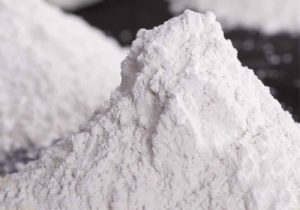
CP-992 Organophilic clay
CP-992 Organophilic Clay, the wet process improved viscosifier and gelling agent . It is a rapidly dispersing.
Bentonite clay drilling mud: Are you looking for an addition to help your products perform better? Take a look at Organoclay. Our addition can aid in rheological, thickening, thixotropic, and anti-settling qualities. With our additive, your products will perform better than ever before. With our additive, you may

CP-992 Organophilic Clay, the wet process improved viscosifier and gelling agent . It is a rapidly dispersing.

CP-982 Organophilic Clay is an amine treated bentonite with a moderate temperature performance.

CP-150 Organophilic Clay is a self-activating organoclay that disperses easily and performs well in diesel, low aromatic mineral oil, modified vegetable oil, and synthetic base fluid formulations.


CP-10 organoclay is a rheological additive made of organoclay. It is used in non-polar to moderately polar aliphatic and other solvent systems

CP-MPZ organoclays is an modified bentonite that is used in solvent and resin systems ranging from non-polar to highly polar.

The CP-MPS rheology modifier is a type of organo clay rheological additive that is used in solvent and resin systems ranging from non-polar to high polarity.
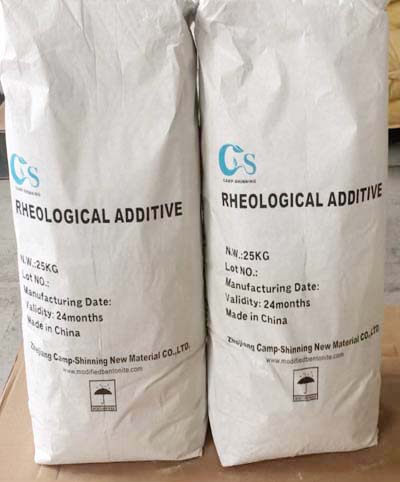
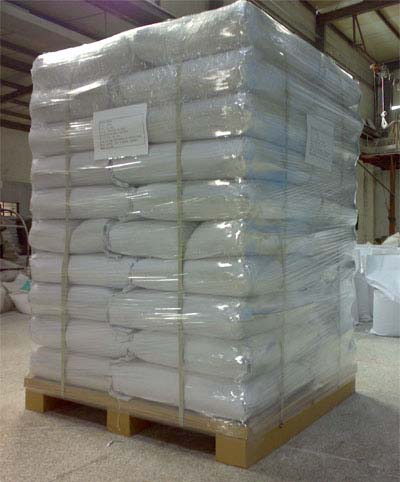
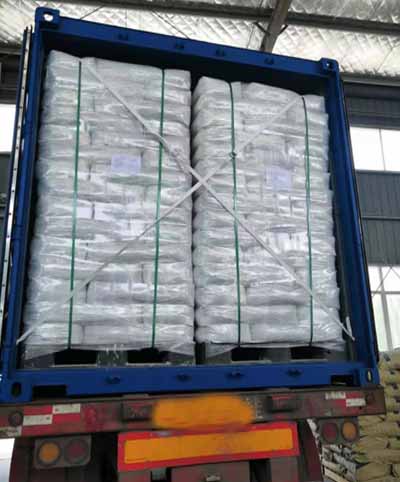
Organoclay Supplier / Manufacturer :
Internet address: https://www.rheologymodifiers.com/
Email address: [email protected]
Whatsapp / Wechat: +86-13185071071
Organophilic Clay Supplier / Manufacturer :

CP-EW Organoclay for Water Based paint. It is primarily employed in water borne paint systems,such as latex paint. So it is a good water based additive in paints,coatings,grease etc.

CP-EWS Modified bentonite It is employed in a water-borne coatings system. CP-EWS organoclay outperforms CP-EW in terms of thixotropy, transparence, and dispersion.

CP-WBS Rheology Modifier is rheological modified bentonite. It is mostly employed in water-borne systems.


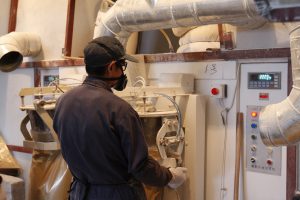
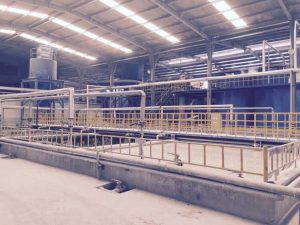


The Organoclay bentonite | Organophilic clay -specialized Zhejiang Camp-Shinning New Material CO.,LTD. and Hangzhou Camp-Shinning CO.,LTD. are subsidiaries of Camp-Shinning.
Camp-shinning concentrated on high value-added, high-technology organo bentonite series products, particularly in research, development, manufacturing, and sales of organic (solvent based organoclay) and inorganic bentonite (water based organoclay).
Our Organophilic bentonite clay finds widespread application in oil drilling mud, paint, coating, lubricating grease, adhesive, construction mortar, cosmetics, and waste water treatment, among other applications. A group of world-class professional users and distributors, such as SUN CHEMICAL,,SIEGWERK,LEHMANN &VOsS, and others, have acknowledged our dependable quality.
Current annual production of organic bentonite clay | organoclay is 20,000 metric tons, while refined bentonite production is 15,000 metric tons.
Our ISO 9001 quality system certification and IS014001 environmental management system certification, as well as our own mine with superior ore quality and production of proprietary technology, ensure the long-term quality and supply stability of our Organoclay bentonite | Organophilic clay.
Our mission is to provide users with superior Organoclay bentonite | Organophilic clay and services and to collaborate with them to achieve success and glory.
Internet address: https://www.rheologymodifiers.com/ and email address: [email protected]
Whatsapp / Wechat: +86-13185071071
Organoclay | Organophilic Clay CP-2 also named amine treated Bentonite.
In diesel oil based fluids,organophilic clay viscosifier CP-2 are used to increase carrying capacity and suspension properties, providing support for weight materials and improved cutting removal. Organophilic bentonite also aids in filter-cake formation and filtration control.
Properties
Composition Organically modified bentonite clay
Physical appearance Off white to tan free-flowing powder
Moisture content (105℃,2hr) ≤4%
Particle size (<76μm or 200mesh) ≥95%
Specific Gravity 1.6-1.8
Advantages
Effective viscosifier and gellant
Aids control of fluid loss to the formation
Increases emulsion stability
Improves cuttings carrying and hole cleaning capacity
Suspends weighting materials and other solids
Confers temperature stability to the fluid
Application
Base oil:
Diesel Oils
Crude Oils
Mineral Oils
Synthetic Oil
Viscosifying drilling Fluids:
Oil based drilling fluids
Invert emulsion fluids
Workover fluids
Completion fluids
Casing packs
Packer fluids
Spotting fluids
Package
Organoclay | Organophilic Clay CP-2 is packed in 50lb(22.7kg) or 25kg/bag or customized,multi-wall paper sacks or Kraft paper bag with PE liner or customized.
Storage
CP-2 Store in a dry, well-ventilated area with temperature of 0℃-30℃. Keep container closed. The quality guarantee period is 24 months.
Notice
The information on use is based on data which are believed reliable, but any recommendation or suggestion made is without guarantee or warranty, since the conditions of use are outside our control. All products are sold on the conditions that purchasers shall make their own tests to determine the suitability of such products for their purpose and that all risks are assumed by user. We disclaim any responsibility for damages resulting from careless or improper handling or use. Nothing herein is to be taken as permission, inducement or recommendation to practice any patented invention without a license.
Internet address: https://www.rheologicaladditive.com/ and email address: [email protected]
Whatsapp / Wechat: +86-13185071071
Bentonite clay drilling mud Suppliers of drilling mud made from bentonite clay should adhere to specific guidelines and keep a substantial supply on hand. Additionally, they must make sure that the stockpiles are appropriately blended and managed while drying. This will increase the product’s dependability. These are a few of its attributes: Low viscosity, improved fluid loss control, high yield point, and increased gel strength. a point of high yield : Bentonite clay drilling mud Drilling muds made of bentonite clay are renowned for having a high yield point. This clay is utilized when a high volume flow is required and is suited for vertical well drilling. Cuttings are transported faster by this high volume flow than by gravity. Cuttings can be put into tubs or storage pits after they have fallen out of suspension, which is something that many contractors who use vertical well drilling permit to happen. Drilling muds may be treated with polymers to increase viscosity. As an illustration, organophilic clay can boost viscosity while preserving the clay suspension. According to numerous research, Organophilic clay raises the yield point of drilling muds and improves their ability to sustain shear stress. A drilling mud made of bentonite clay typically has a pH of nine to ten. For the best filtration and rheological characteristics of drilling fluid, this pH range is advised. However, it’s crucial to use a pH range that’s neither excessively high nor low. The capacity of a drilling mud to transport cuttings determines its yield point. Cuttings will reduce drilling efficiency if they build up in the borehole. As a result, a drilling mud’s Equivalent Circulating Density increases with its Yield Point. Make sure to select a bentonite clay with a low viscosity if you plan to drill with it. It is recommended to add dispersants, which serve as thinners and stop the fluid from flowing off into the formation, if your mud gets too thick. Granular bentonite is a different approach that can help with partial loss. Bentonite clay drilling mud Low-viscosity drilling fluid made from bentonite clay can be made in one of two ways. The component can first be added to a tank of water, ideally warm. You can also add soda ash, which increases the pH of water to soften it. Utilizing a pre-mix tank is an additional choice. To make sure you have the right volume for your drilling operation, a pre-mixed tank is a handy tool. You can prevent the issue of excessive drilling by doing this. Additionally, you can modify the pH level or add more to the drilling fluid to change its viscosity. You can change the low-viscosity bentonite clay drilling fluid’s formula to meet your drilling requirements. Additionally, you can select a precise thickness to get the best drilling results. The utilization of the mud is essential to the effective completion of wells since it plays numerous roles in drilling. This is especially true for drilling rigs with limited power. The hydration capacity of the drilling fluid made from low-viscosity bentonite clay is one of the most crucial considerations. The ease of lifting increases with bentonite hydration. Compared to other clays, hydrated bentonite is more elastic and can swell up to ten times its initial volume. The ease with which the pieces of bentonite clay separate is another thing to take into account. higher gel strength : Bentonite clay drilling mud In comparison to standard sand-and-water drilling fluids, bentonite clay is a great drilling fluid that has a variety of benefits. Because of its strong gel, it can be used to drill deep holes in challenging geological rocks. However, a number of factors affect how sturdy it is. The density of the drilling fluid is one of these variables. While drilling muds with varying densities will need a variable gel strength for their particular purposes, drilling fluids with similar viscosities can be employed. For instance, a vertical drilling mud circuit will require a higher density than a horizontal drilling mud circuit. The drilling fluid’s density could rise by 5% after adding bentonite. improved control of fluid loss By incorporating bentonite clay into drilling mud, fluid loss control with benzonite clay drilling mud can be improved. This new kind of mud is environmentally friendly and enhances drilling mud performance. This kind of mud’s clay and starch particles have intricate network architectures that help with fluid loss control. Being able to absorb water is another factor that bentonite clay drilling mud uses to better control fluid loss. Its volume can multiply many times when combined with water. Bentonite is advantageous for a range of industrial applications because of its characteristic. Additionally, it aids in borehole stabilization, drill bit lubrication, drill bit cooling, and drilling waste transport. Higher drilling productivity and lower drilling costs will result from improved fluid-loss control with bentonite clay drilling mud. The mud could, however, be water-wet or water-resistant. It might then pack the wellbore, leading to issues with fluid loss. Additionally, these drilling muds might have improved rheological characteristics and lessened formation damage. The usage of carboxymethylated starch could be a superior bentonite clay replacement. It also has superior filtration and rheological qualities. Using low-yield bentonite in construction A frequent issue during drilling operations is a lack of water at the location. A jammed bit or a collapsed borehole might be caused by a shortage of water. To address this issue, drilling mud suppliers should take adequate samples of the deposits, keep sizable stocks of drilling mud, and make sure the mud is mixed and dried properly. Understanding the effects of each ingredient is important when comparing various products. The qualities of the drilling fluid will suffer from high viscosity, which is brought on by high solids concentration. However, the fluid’s capacity to transport drill cuttings will increase with the use of high-quality sodium bentonite. To increase viscosity and decrease the need for pricey colloidal bentonite, high-molecular-weight polymer can be added to the low-yield bentonite drilling mud. Additionally, this may lengthen bit life and reduce drilling fluid expenses. The ability of the mud to suspend drill cuttings can be tested to see if it is appropriate for drilling. After 10 seconds of rest, a drilling mud’s gel strength can be assessed. The mud is more suited for drilling operations when the gel strength is lower. Bentonite clay drilling mud For stability and pressure control, drilling mud density is crucial. High density drilling mud is essential for controlling formation pressure and enhancing wellbore stability. A histogram plot was used to compare the densities of drilling mud made from local and imported bentonite clay.
Organoclay Supplier / Manufacturer :
Internet address: https://www.rheologymodifiers.com/
Email address: [email protected]
Whatsapp / Wechat: +86-13185071071
Organophilic Clay Supplier / Manufacturer :

CP-180 organoclay is an organo clay rheological additive (modified montmorillonite) designed specifically for use in solvent-based systems

CP-34 organoclay is a modified bentonite that has been specifically designed for use in solvent-based systems.

CP-EDS modified bentonite is a kind of organo clay rheological additive. It is used in systems of medium polarity and high polarity system.
Bentonite clay drilling mud